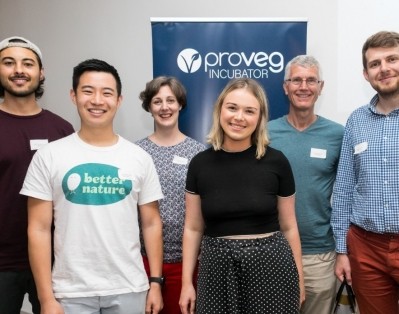UK pushes for crop biofortification with Genetic Technology Bill

The Genetic Technology (Precision Breeding) Bill will look to remove red tape that restricts research into new gene editing technology, enabling development of precision bred plants and animals.
“The Genetic Technology Bill provides a wonderful opportunity to explore ways to address the nutritional-deficiency that is found in many crop-based foods,” explains Professor Martin Warren, Chief Scientific Officer at the Quadram Institute.
“Gene editing allows for the development of plants with improved qualities that normally take many years to produce using traditional breeding programs.
“The ability to increase levels of key minerals such as iron and zinc and vitamins A, B and D in plants holds significant potential as a way to improve lifelong health through biofortification,” he adds.
“As we move towards more crop-based sustainable diets the need to develop sustainable and healthy functional foods is clear.”
The gene editing tools the legislation covers allows researchers to make precise changes to the genomes of plants to give them beneficial traits or characteristics.
This could include crops that are more nutritious crops, providing vital missing nutrients to diets or making staple foods healthier and more sustainable for the planet.
Genome editing of tomato
Only last week, NutraIngredients reported on the genome editing of the humble tomato that could provide a route to vitamin D sufficiency.
The study, which also states the waste material produced could provide the basis of increased supplement production, details how the team engineered provitamin D3 accumulation in the tomato
This was achieved by turning off a specific molecule in the plant’s genome increasing the vitamin in both the fruit and leaves of tomato plants. It was then converted to vitamin D3 via exposure to UVB light.
The Government stresses that precision breeding outlined in the new legislation is different to genetic modification (GM) techniques, where genes from one species are introduced to another.
“The Government is taking a step-by-step approach by creating legislation for plants first,” says the announcement.
“No changes will be made to the regulation of animals under the GMO regime until a regulatory system is developed to safeguard animal welfare.”
“These new proposals, while enabling many useful innovations to go forward, will still leave crops improved with the GM method – such as blight resistant potatoes, or oilseeds that produce fish oil, or purple tomatoes – subject to the same excessive regulation as before,” adds Professor Jonathan Jones, Plant Scientist based at The Sainsbury Laboratory.
‘Outside of the EU’
“I very much hope that in the future we will be able to go further. Crop varieties should be regulated on their properties rather than the method used to improve them, especially at a time when food prices are soaring.”
The UK’s Environment Secretary, George Eustice, says: “Outside the EU we are free to follow the science.
“These precision technologies allow us to speed up the breeding of plants that have natural resistance to diseases and better use of soil nutrients so we can have higher yields with fewer pesticides and fertilisers.
“The UK has some incredible academic centres of excellence, and they are poised to lead the way.”














